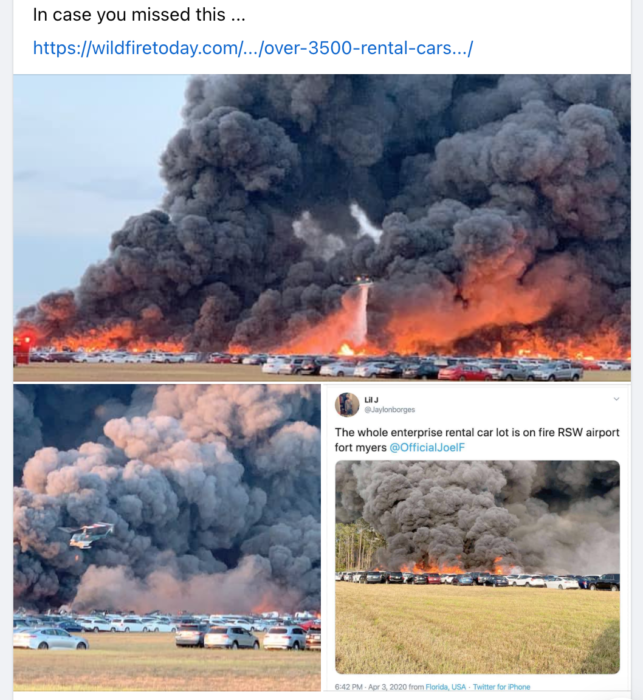Category: ON THIS DAY
THIS DAY IN FIRE HISTORY: Weeks Act’s suppression focus sets stage for catastrophic fires
The “most important law in the creation of eastern national forests” was established on this day 113 years ago.
The Weeks Act, signed into law by President William Howard Taft on March 1, 1911, allowed the federal government to purchase private land to protect the headwaters of rivers and watersheds in the eastern United States. The act nationalized the U.S. Forest Service, as neither federal nor state governments owned substantial forested lands east of the Mississippi River before the act’s passage.
 According to the Forest History Society, in just 10 years Congress had rejected more than 40 bills calling for the establishment of eastern national forests.
According to the Forest History Society, in just 10 years Congress had rejected more than 40 bills calling for the establishment of eastern national forests.
Senators and congressmen opposed these measures for various reasons; some western representatives (and conservation groups) who supported national forests in principle resented the possible loss of funding to their eastern counterparts. Many fiscal conservatives agreed with House Speaker Joe Cannon when he declared “not one cent for scenery.”
Leadership on the issue came from a surprise source. Congressman John Weeks, a Republican from Massachusetts, was a former naval officer and a successful banker. Weeks was elected to the House in 1905, and two years later he was appointed to the House Committee on Agriculture by Speaker Cannon.

At first Weeks didn’t understand why — he had few farmers in his district, and he had little interest in agricultural issues in Congress. He was concerned, though, about the damage logging had caused in the White Mountains, near where he had grown up and where he now summered with his family. Speaker Cannon told Weeks that if he, as a businessman, could put together a forestry bill that he supported, then Cannon would get it considered in the House. The man who had once declared “not one cent for scenery” had changed his mind.
The Weeks Act not only paved the way for the National Forest System, but also established the nation’s first interagency wildland firefighting effort, an effort that continued and worsened the settler colonial practice of fire suppression through bans of cultural fire usage.
There were multiple reasons for prioritizing USFS fire control for the new forests, according to a system article published on the act’s centennial. A 1902 report described the biggest threats to Appalachian forests as being fires and logging. In 1910, a series of catastrophic wildfires now known as the “Big Blowup” devastated Idaho and Montana, killing more than 100 firefighters and destroying several towns. Forest reserve advocates used these and other fire events to convince Congress to establish an agency that would primarily focus on wildfire suppression.
“Fire lookout towers and trails were built and ‘forest guards’ were hired at a salary of $50 a month,” the USFS article said. “Because the Weeks Act provided matching federal funding for state wildfire management spending, state divisions of forestry also upgraded their fire control organizations.”
What wildland firefighters now affirm as an uninformed suppression effort was worsened through fear-based short-sighted decisionmaking, along with xenophobic attitudes toward the people who had long lived on the land.
The Karuk Tribe in California views the passage of the Weeks Act and the increasing catastrophic fires across the country as having a direct connection.
“The passage of the Weeks Act in 1911 following the Big Burn of 1910 made cultural uses of fire essentially illegal, and for the many decades following, less and less burning occurred while more and more vegetation grew,” the tribe’s website said. “Over a century of policies of fire suppression has created the conditions for the catastrophic, high-intensity wildfires we are seeing today. Warming temperatures and summer droughts further exacerbate these conditions.”
The USFS wildland firefighting system now largely understands the benefit of managed fire and makes an effort to include tribes in its decisionmaking. There is more work to be done, however, as climate change further exacerbates the cracks in the system that firefighters and managers are trying to mend. For better or for worse, it all started with the Weeks Act.
ON THIS DAY — 2022



